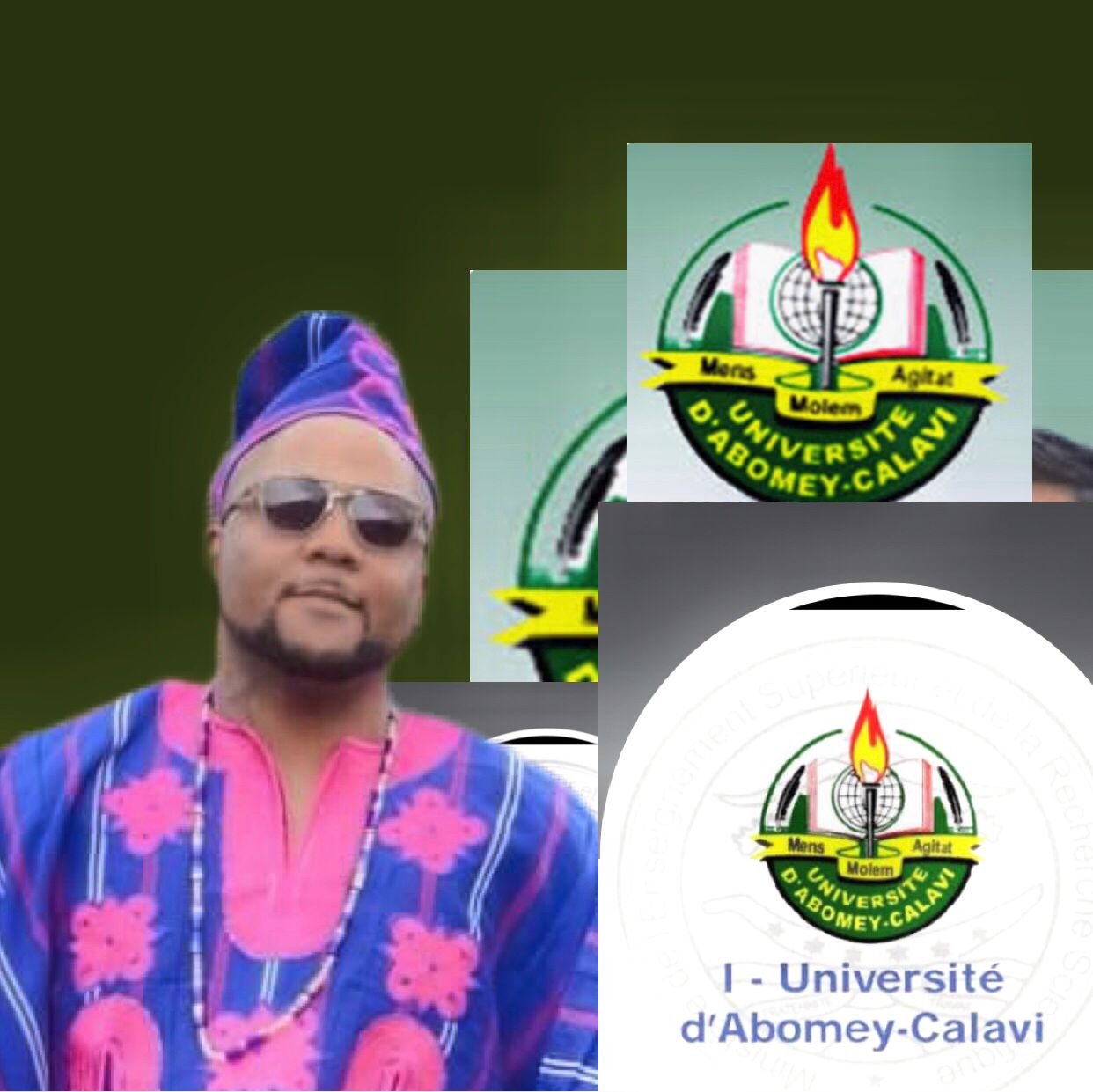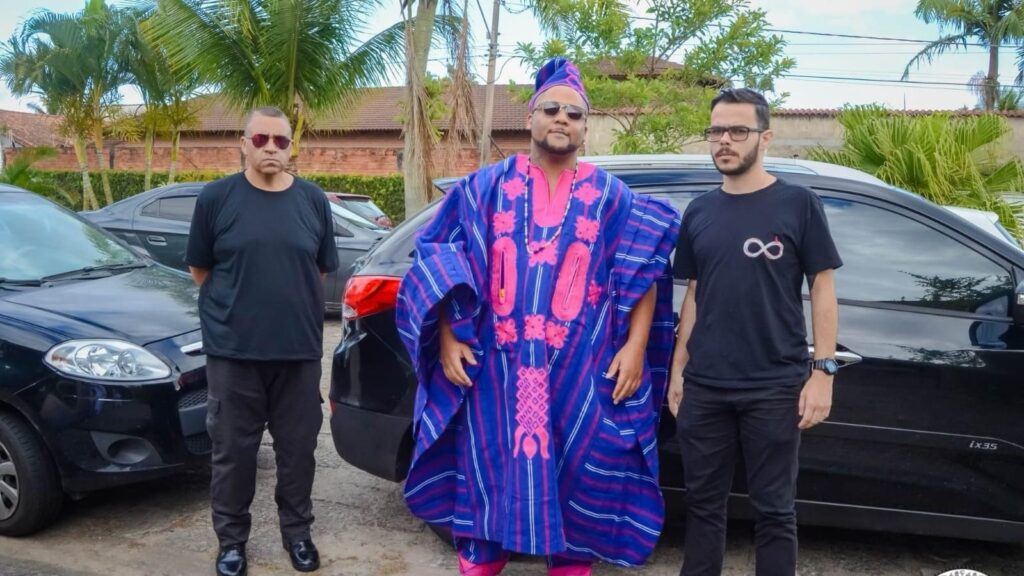- Home
- Uncategorized
- Université d’Abomey-Calavi Celebrates Yorùbá-Nagó Heritage, Honoring Olúwo Àlàbí Atinúkólá and Seven Other Diaspora Leaders

Université d’Abomey-Calavi Celebrates Yorùbá-Nagó Heritage, Honoring Olúwo Àlàbí Atinúkólá and Seven Other Diaspora Leaders
On March 8, 2025, International Women’s Day, the Amphitheater of Université d’Abomey-Calavi (UAC) in Benin became a center of cultural celebration and historical recognition.
The Nagó Student Association organized a special ceremony to honor the invaluable contributions of Olúwo Àlàbí Atinúkólá and seven other traditionalist leaders from the Yorùbá-Nagó diaspora. These honorees, hailing from Brazil, Cuba, Trinidad & Tobago, and other parts of the world, have played a crucial role in preserving and promoting Yorùbá culture beyond Africa.

The event was attended by esteemed scholars, traditionalists, and students, all gathered to celebrate the enduring legacy of Yorùbá spirituality and heritage.
The Rector of Université d’Abomey-Calavi delivered a powerful speech, recognizing the importance of these figures in keeping alive the sacred traditions, philosophy, and spiritual practices of the Yorùbá-Nagó people. He expressed deep gratitude for their tireless work in their respective countries, stating:
“Their commitment ensures that the Yorùbá-Nagó traditions remain a beacon of resilience and identity across the world. By honoring these individuals, we also honor our ancestors, our history, and the bridge that connects us to our diaspora.”
Founded in 1970 as part of the Université Nationale du Bénin, the Université d’Abomey-Calavi (UAC) stands as the oldest and most prestigious higher education institution in Benin. In 2001, the university was restructured and renamed, reinforcing its commitment to academic excellence, research, and cultural preservation.
Located in Abomey-Calavi, near Cotonou, UAC is a pillar of intellectual and cultural development in West Africa. It houses numerous faculties, institutes, and research centers, covering fields such as humanities, social sciences, law, medicine, engineering, and agriculture. The university has long been a space for discourse on African identity, history, and traditions. Its role in hosting this Yorùbá-Nagó cultural event further solidifies its commitment to recognizing the spiritual and cultural legacy of the continent and its diaspora.
The term Yorùbá-Nagó refers to a branch of the Yorùbá people, particularly those who were historically associated with the Kingdom of Kétu, which is now in Benin. Due to historical migrations and the transatlantic slave trade, many Yorùbá-Nagó people were forcibly taken to the Americas, where they played a key role in shaping Afro-diasporic religious traditions, including Candomblé in Brazil, Santería in Cuba, and Orisha worship in Trinidad & Tobago.
The Nagó identity, while deeply connected to the wider Yorùbá civilization, carries specific historical and linguistic characteristics. It represents resilience, adaptation, and the ability to maintain sacred traditions despite displacement and adversity. Today, Nagó culture is widely celebrated in parts of the Caribbean and South America, where spiritual practices, language elements, and artistic expressions continue to thrive.
The President of the Nagó Student Association, Wakumi, paid tribute to the honorees, emphasizing their unwavering dedication to the preservation of Yorùbá spiritual and cultural traditions. He noted that, while some honorees were unable to attend in person, their designated representatives ensured that their voices were heard:
“These leaders have dedicated their lives to safeguarding the traditions that connect us to our ancestors. Today, we recognize their sacrifices and celebrate the impact they have had in shaping and strengthening our cultural identity worldwide.”
Speaking on behalf of the honorees, Olúwo Àlàbí Atinúkólá expressed gratitude for the recognition and reaffirmed his lifelong mission:
“This honor is not just for me but for all those who work tirelessly to keep our ancestry alive. Our culture, our spirituality, and our history are not relics of the past; they are living traditions that continue to shape who we are today. I will continue striving to elevate the cultural and spiritual consciousness of the Yorùbá-Nagó people, in Brazil and around the world.”
The event concluded with cultural performances, featuring traditional Yorùbá drumming, chanting, and poetry, which symbolized the unbreakable bond between Africa and its diaspora. Attendees were reminded that traditions survive not only through historical remembrance but through active practice, education, and intergenerational transmission.
The ceremony at Université d’Abomey-Calavi not only celebrated the achievements of contemporary Yorùbá-Nagó leaders but also reinforced the university’s role in bridging the past, present, and future of African spiritual and cultural heritage.